




Hello MUN members! The American School of Milan is happy to welcome you to Milan with a traditional Italian aperitivo.
WHEN?
17:30 to 19:30
THURSDAY

Brief History:
For Italians, aperitivo is a pre-meal drink and snack to "open the stomach" before dinner. It is believed that this tradition started all the way back in the 18th century in Piedmont!
There is going to be a DJ…
The American School of Milan this year is hosting the ASMMUN conference Even though it is a modern school that has been recently renovated, it is also rich in its history, dating back to 1962 Here are some highlights:
1962 - ASM opens for the first time with 17 students in Sesto San Giovanni; founded by a small group of English-speaking parents who wanted to provide an Anglo-American education for their children
1976 - ASM changes premises from Sesto to Noverasco di Opera
1990s - Student enrollment reaches 500+ and the Panther becomes the new mascot of ASM.
2000s - ASM becomes one of first laptop schools in Europe and celebrates its 40th anniversary. In 2009, the school increases by 40% the square footage of its facilities, and in 2010 ASM introduces an official Advancement Program and has raised more than 1.2 million since its launch!

ASM’s cafeteria

2016 - The first ASMMUN, held with three local schools attending including BSM and the Italian High School Manzoni
2019 - ASM is awarded the Green Flag for its initiatives to make improvements to the school in areas of Health, Biodiversity and more Various other facilities are also added to the school including a new greenhouse and a new auditorium that can accommodate 500 people
ASM is now one of the most modern international schools in Milan It is still currently growing and improving as it has done it its previous 62 years!
BY ANNA BERGAMO
When I first arrived in Milan, I thought I was ready I had my passport, friends, a good school and a suitcase full of excitement But what I didn’t pack (literally or mentally) was Italian
As an international student living in one of Italy’s most vibrant cities, you’d think not speaking the language would feel like a minor inconvenience Milan, after all, is a cosmopolitan and international city English is sprinkled here and there, in fashion ads or university classrooms But what I quickly learned is that surviving isn’t the same as belonging
The Daily Language Struggle (aka my first month in Italy)
Grocery shopping became a full-blown performance: pointing at vegetables, nodding like a bobblehead, and praying the total cost was within budget One time, I confused sale (salt) with saldi (sales) and spent five minutes wondering why salt was 50% off Reading signs on the metro required Google Translate and a prayer
The first time I tried to order a coffee, I accidentally asked for a “macchina” instead of a macchiato (I asked for a car I got a confused stare).
At the pharmacy, I attempted to mime a headache and probably looked like I was auditioning for an experimental dance piece
When Silence Isn’t Golden (an exposure to patriotic italians)
But here’s where things stop being funny and start feeling isolating
A lot of Italians, especially in Milan, aren’t particularly patient when it comes to foreigners not speaking the language. There’s a kind of unspoken expectation: you’re here, so you should adapt While fair, it can feel harsh when you’re trying and still getting the cold shoulder I’ve had shopkeepers pretend not to understand me when I was speaking perfectly decent Italian (with a bad accent, sure, but still) In group settings, people often switch back to Italian the second they think you're too slow to keep up, as if the effort of inclusion is just too much
Welcome to Milan everyone! I’m sure that in your bus ride to the hotel and our school you were already able to gaze at the wonderful architecture that surrounds you But let's be realistic, Milan is not the most gorgeous and fantastical place on earth Nevertheless, we do have our gems
I would be a fool not to immediately instruct you to go visit the Duomo while you are here It has a little bit of everything for everyone For you animal lovers, we have about 5 351018 of pigeons (a very unrealistic number based on personal experience) for you to feed and take pictures with On the other hand for history and architecture lovers the Milan Cathedral is an unskippable side quest on your journey Do not worry, I’m not here to bore you with the details and give you a history lesson
Having said this the Duomo is incredibly impressive, it started being built in 1386 and took over six centuries to complete, surviving both world wars.
BY LEA PRETI

If you have seen the Duomo before, chances are you haven't seen Castello Sforzesco and its park, or at least not the way I recommend exploring it Of course the classic way is taking a nice stroll in the Parco Sempione and heading straight for the museums While I agree that “La Pietà di Michelangelo” and “Il Museo di Arte Antica” are perfect for a cloudy day, if the weather is good why not have a picnic instead? In my personal experience Parco Sempione is the least crowded of the parks, and it is surrounded by many pop up food stalls, so why not sit down in the grass next to a pond of ducks and live your best life for 30 minutes?
Living in Milan without speaking Italian taught me humility, patience, and how to cry in a supermarket without attracting attention (pro tip: sunglasses help) But most of all, it taught me that language is more than just grammar and vocabulary: it’s community, connection, and a two-way street
And while I’m doing my part, I wish more people here understood that inclusion isn’t just about being polite, it’s about being welcoming You don’t have to switch to perfect English But a smile, a little patience goes a long way
I’m still learning I’m still nervous But now, I feel less like a tourist and more like a local in progress. One badly conjugated verb at a time And yes I finally know how to order a coffee Just don’t ask me to order meat at the butcher That’s a war I haven’t won yet

Lastly, I did want to take a moment to talk about food I promise Italians do not solely survive on carbohydrates, though we do like a good pizza However, what I want to focus on are people with allergies Living in Italy it often seems impossible to find places that offer gluten free food, lucky for you I know exactly where you should go Pan Per Me is a wonderful cafe which not only offers completely gluten free homemade baked goods but it also specializes in bread and sandwiches If you ever need to grab a quick lunch for the next day or just don't have enough time to sit down for a full meal this is the place for you


BY SOFIA SALVATORI
For the 2025 ASMMUN Conference, schools and students from all over the world are going to be joining the American School of Milan In an exciting opportunity to meet new people, we would like to introduce some of the schools that have taken part in this event, so you can read a little about some of your companions that will join you for this year.
Located near the shores of the Zürichsee lake, the Zurich International School is a non-profit organization. With 2 campuses separating primary school, (ages 3-11) from secondary school (ages 11-18). The school offers a wide variety of activities for students of all ages. Which includes challenging leadership opportunities starting in fourth grade, such as: Student council, the ZIS Sport Leaders program: ‘Prides of Lions’ and most importantly ModelUnitedNations(MUN).

Last year, the Vienna International School might have been the most diverse schooltotakepartofASMMUN2024,anditmaystillholdthattitle
This school is a secular college-preparatory international school in Baku, Azerbaijan. The school is accredited by the Azerbaijani Education Ministry, and the school mandates Azerbaijani language for students. It has many student-founded clubs with the most important one being MUN.

Based in France, Anglophone Section of Fontainebleau has been providing bilingual education since 1979 for students from the ages of six to eighteen For the Anglophone Section of Fontainebleau, Model United Nations aims to encourage and initiate young individuals in having an active role in global events to further promote international cooperation, understanding and tolerance Preparations for MUN, are thorough All students go through various steps Such as, finding a UN Committee they are interested in and becoming an expert within it. Club members even participate in mock preparatory debates with other schools situated in France.
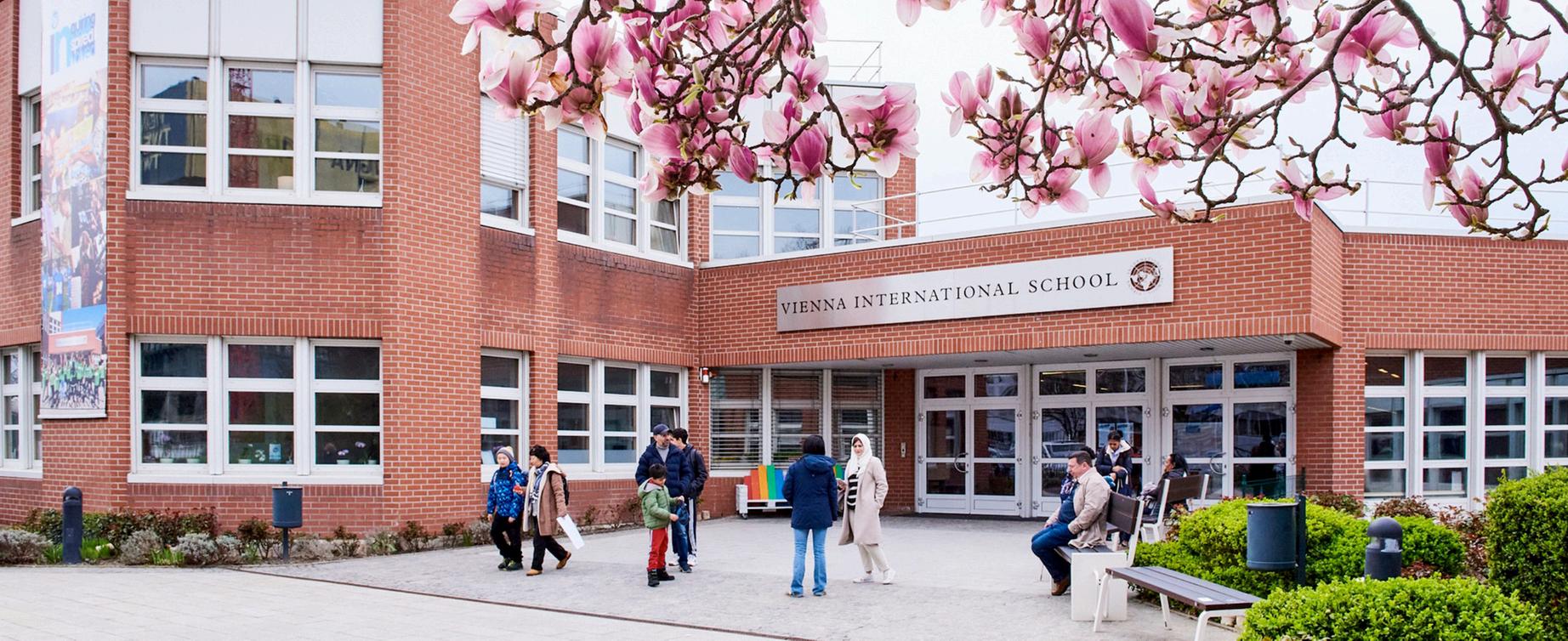
This school has an incredibly diverse student body, with roughly 113 different nationalities and 90 native languages spoken among 1397 students. Not only does it live up to its international school title, it also held the Model United Nations of Vienna 2025 (MUNoV25), the largest Model United Nations conference in Austria, at the Vienna International Center, one of the four globalUNheadquarter.


BY OPHELIA COATES
The world is facing a rapidly escalating synthetic opioid crisis, primarily driven by the spread of strong, illicitly produced fentanyl (IMF) and similar drugs (Centres for Disease Control and Prevention) These synthetic opioids have become the leading cause of overdose deaths in many regions, turning what was once a localised issue into a transnational public health emergency.In response to this growing threat, the United Nations Office on Drugs and Crime (UNODC) has been tasked with supporting Member States in tackling illicit drugs, organised crime, and terrorism, placing this crisis high on its agenda The UNODC aims to improve international collaboration and coordinate strategies to lessen the negative impact of synthetic opioids
Synthetic opioids are laboratory-made substances that act on the same targets in the brain as natural opioids (E g Codeine and Morphine) to produce analgesic (pain relief) effects (U.S. Drug Enforcement Administration) While originally developed for medical purposes, illicit production and trafficking surged after 2010, flooding drug markets across Europe, Asia, and Australia The 2013 North American crisis marked a turning point, when synthetic opioids began to replace heroin and drive unprecedented increases in overdose deaths By 2021, the UNODC estimated that 60 million people worldwide were using opioids non-medically (EUDA)


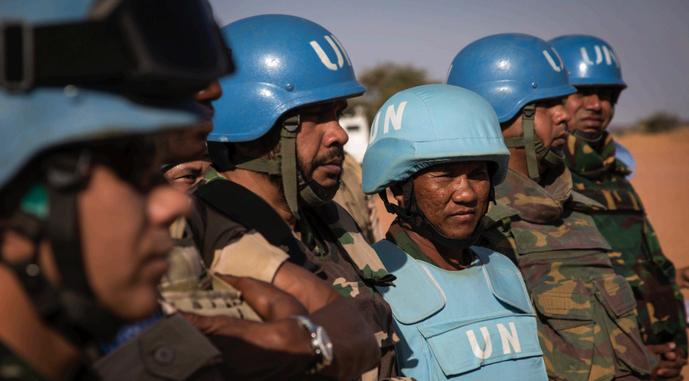
Today, the synthetic opioid crisis has escalated into a global health emergency, claiming tens of thousands of lives every year and surpassing deaths caused by natural opioids. North America remains the epicentre, but cases are rising across Europe, while East and Southeast Asia have become key hubs for production, trafficking, and consumption. These substances are cheaply produced in clandestine laboratories with minimal precursor chemicals (U S Drug Enforcement Administration) Their extreme potency enables traffickers to move vast amounts in small shipments, often hidden, sent by mail, or sold on the dark web Frequently mixed into other drugs without users knowledge, synthetic opioids have impacted families and communities worldwide As UNODC Executive Director Ghada Waly warned, “Synthetic opioids are poisoning communities at an unprecedented pace, exploiting vulnerabilities across borders and societies” (United Nations Office on Drugs and Crime)
As a result, the global synthetic opioid crisis endangers health, security, and economies Driven by fentanyl and illicit networks, it fuels record overdoses, strains healthcare systems, and demands coordinated international action The UNODC has prioritised strategies addressing these challenges, while CND resolutions and coalitions target precursors and trafficking. At the national level, governments are reinforcing laws, enhancing enforcement, and expanding public health measures, such as access to naloxone and treatment programs.
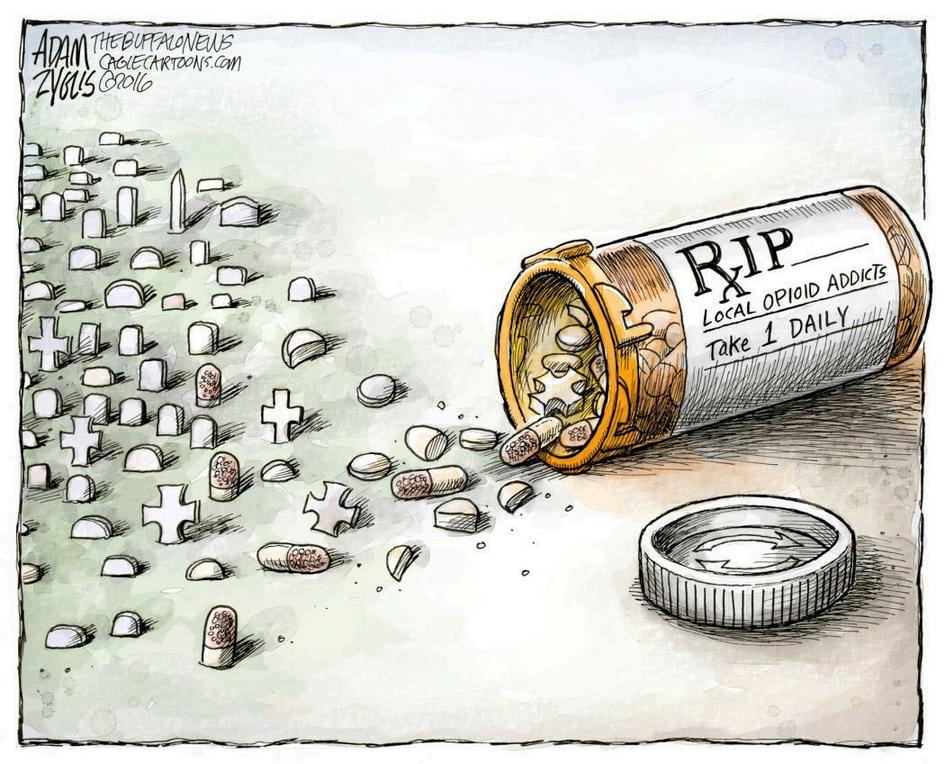
The synthetic opioid crisis continues to escalate, posing a serious threat to public health, security, and economic stability worldwide While the UNODC, CND, and national governments have taken important steps, the scale of the challenge requires stronger cooperation and future improvements Expanding prevention schemes, treatment, and educating on early warning signs is crucial, alongside coordinated enforcement efforts Only through continuous international engagement can Member States reduce the dangerous impacts of synthetic opioids on society.
Ensuring sustainable economic recovery in the Middle East and North Africa (MENA) region after conflict has been overlooked At the tenth annual ASMMUN conference, the United Nations Development Programme (UNDP) addresses this issue under the theme “Navigating Change: Building Stability in an Unpredictable World.”
Achieving sustainable economic recovery requires tackling the challenges facing countries across the MENA region
Post-conflict recovery across the region is marked by political instability, weakened state institutions, and severe humanitarian crises
Renewed civil conflicts, such as in Lebanon and more recently Yemen, have devastated infrastructure and displaced over 16 million people. Meanwhile, fragile governance and eroding public trust continue to hinder reconstruction and the creation of equitable socio-economic conditions
To ensure long-term economic recovery and growth, greater emphasis must be placed on local economic development
BY NAIMA EL OAURGUI-MAYERHOFER
This involves a community-based approach to rebuilding small businesses, strengthening value chains, expanding market linkages, and encouraging entrepreneurship The UNDP supports sustainable economic recovery through inclusive, marketbased approaches such as Making Markets Work for the Poor (M4P)
A key aspect of M4P is addressing the structural constraints especially those in post-conflict environments that prevent the development of sustainable market systems for vulnerable communities

The Baladini Kitchen Project in Egypt exemplifies this approach by equipping low-income women with technical, business, and hygiene skills to enter the food market The initiative promotes fair wages, leadership opportunities, and access to higher-value markets, enhancing women’s economic agency.
Aligned with M4P principles, it addresses systemic barriers, builds capacity, and facilitates access to market opportunities, empowering marginalized groups in post-crisis development.
All the elements needed for sustainable economic recovery in the MENA region exist Success will depend on each country’s ability to mobilize its young population while ensuring the inclusion of marginalized groups such as women, refugees, and ethnic minorities Leveraging the region’s natural resources for post-conflict recovery while maintaining environmental sustainability is equally vital
Achieving this requires collective governance among regional stakeholders While organizations such as the Gulf Cooperation Council (GCC) already foster cooperation, a broader, more inclusive regional effort is essential for long-term recovery
Sustainable economic recovery in the MENA region depends on coordinated, locally driven strategies. Through approaches like M4P and by empowering marginalized groups, the UNDP aims to foster resilient, equitable economies. Mobilizing youth, responsibly managing natural resources, and strengthening regional cooperation are key to lifting the region out of post-conflict conditions
Ultimately, only through collective action and inclusive governance can the MENA region secure lasting stability and prosperity
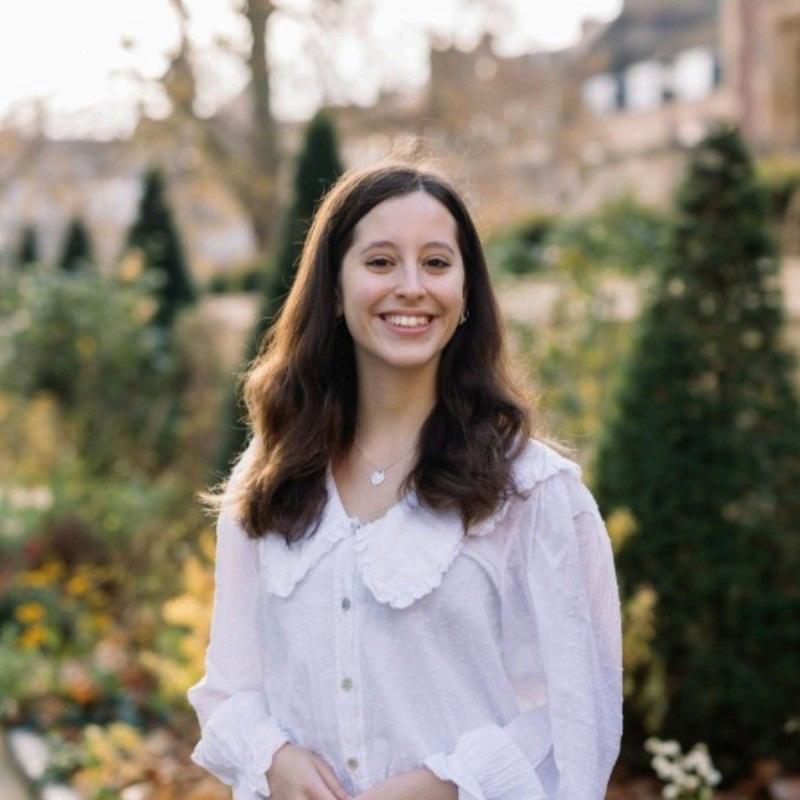
For this issue, the press corps interviewed Nora Dezsenyi, who shared her journey from ASM classrooms to the United Nations
“Throughout my whole high school I did MUN… it was always a very big part of my life.” Nora recalls. From her first debates to organizing the ASM MUN conference as part of the Secretariat, MUN was more than just an extracurricular it shaped her interests and ambitions “Already then I knew that I was more interested in politics, history, those things,” she says, “and I think it was MUN that made me realize that I really do like the world of international relations, diplomacy, politics ”
Nora’s journey continued at King’s College London, where she studied Politics, Philosophy, and Economics. “That further shaped my passion for doing the career that I’m doing right now,” she explains An exchange semester in Singapore gave her a broader perspective on international relations, allowing her to explore the politics of South and South East Asian countries. “It made me realize that it’s very interesting to know about the politics of other countries, not just the ones I am from,” she says
She then pursued a master’s in Development Management at the London School of Economics, which guided her toward her niche: international development and women’s economic empowerment
Today, Nora works at the International Trade Centre, a joint agency of the UN and WTO, focusing on partnerships for the SheTrades initiative “The purpose of SheTrades is to promote and support women’s economic empowerment globally,” she explains “We work with women entrepreneurs to help them scale up their businesses, understand trade regulations, and access new markets ” She describes her work as a mix of “project management for workshops and events” and the “creative side brainstorming new initiatives with partners around the world ” Recently, she organized a workshop in Saudi Arabia, providing digital and financial training for women entrepreneurs an experience she calls “inspiring and deeply rewarding ”
BY ANNA BERGAMO
Nora’s path hasn’t always been smooth “There’s always gonna be someone else who sadly is not as organized,” she admits “You have to just be prepared and accept already beforehand that there will be a last-minute change… what matters is how you react to it.” Reflecting on her earlier years, she adds, “Now I know nothing will go perfectly there will always be some issues,” emphasizing that staying calm, thinking creatively, and adapting quickly are essential skills for anyone working in global contexts
For young delegates dreaming of international careers, Nora offers practical advice:
“Don’t be scared to apply to what you want to apply to ”
“Knowing multiple languages is always a pro Even basics help you bond with people and build meaningful relationships.”
“Stay open-minded and really care about the other person or the other country that you’re working in If you understand the country as a whole or the people better, you’ll be able to help them more and it will be an inspiring moment for you.”
From ASM classrooms to the United Nations, Nora’s story shows that every debate, every speech, and every challenge can be the start of something exceptional She reminds delegates that passion, perseverance, and curiosity are just as important as knowledge and skill and that early experiences, like MUN, can be the stepping stone to a global impact

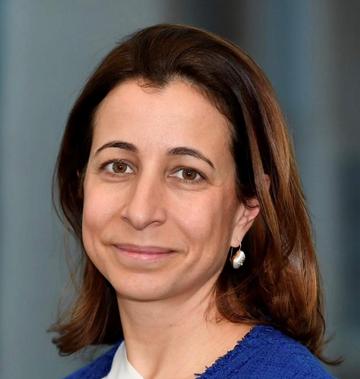
OPENING
BY ANNA BERGAMO
Ms. Rocha has over 20 years of experience in international development finance. She is the Division Director at the IFC - World Bank Group, based in Europe (Paris) overseeing all private sector investments in Central Europe including in Ukraine and managing IFC’s Western European offices (including Paris, London, Brussels and Rome) The World Bank Group is the largest global international development organization with 189 member countries It works to reduce poverty and boost shared prosperity on a livable planet by providing policy advice, technical expertise, and financing to the governments of low- and middle-income countries as well as to the private sector supporting job creation
Could you start by telling us a bit about your educational background? What did you study and how did that shape your career path?
I'm Portuguese So I was born and raised in Portugal And I studied at a local public school and did the local state university, which is the economics faculty in Porto, Portugal Then after that, I went off to do a masters in economics at the London School of Economics, which I finished back in the early 2000s
Could you tell us more about your current role at the World Bank Group what your day-to-day looks like, your main responsibilities, and what you find to be the biggest challenges and rewards, particularly in relation to your work in Ukraine?
I’m currently a Director for the World Bank Group’s private sector arm, the International Finance Corporation, or IFC The Group has three main units: IBRD for the public sector, IFC for the private sector, and MIGA, which provides guarantees I’m based in Paris and oversee Western European offices in London, Paris, Brussels, and Rome working closely with governments like Italy’s, which, along with the U S , is a major shareholder
My role covers Western and Central Europe, as well as Ukraine and Moldova. Because of the war, Ukraine takes a large share of my time We’ve invested over $2 7 billion there in key sectors like energy building wind and solar farms to replace damaged infrastructure, reduce gas dependency, and promote greener growth I manage teams on the ground, many of them Ukrainians, who do incredible work despite the risks Across regions, our projects focus on sustainability, job creation, and supporting small farmers always aiming for tangible, positive community impact. The biggest challenge in Ukraine is the security situation Travel is complex you have to go via Poland, then take a 12-hour train to Kyiv and meetings are often disrupted by air raid alerts that send everyone to bunkers for hours It’s physically and mentally demanding, and keeping teams resilient is tough More broadly, in international development, the hardest part is prioritizing limited resources across many urgent global needs like access to electricity in Africa or job creation to reduce migration pressures The rewards, though, are huge Seeing communities regain power, or buildings rebuilt after destruction, is incredibly fulfilling
The diversity of people and perspectives at the World Bank is also inspiring, as is the opportunity to connect governments and the private sector, help shape policy, and witness real impact Ultimately, the most rewarding part is knowing our work improves lives.
What have you learned about working with people from different cultures and backgrounds?
I used to work for the European Bank for Reconstruction and Development before joining the World Bank And it's a very diverse, international organization based in Europe And I have, an even more diverse organization with headquarters in Washington. So I have learned to listen more, to listen to other people's perspectives, to take off my European hat There's a lot of discussion about what is right for development, what kind of views should we export certain types of models of development from one country to the other And just the acknowledgement that sometimes you need to put yourself much more in the shoes of the other countries, of what they have lived in, what they have gone through, to understand why people are making certain choices or advocating certain measures. So I've really learned that there is a lot of benefit from just trying to understand the other person's position Then the second thing I understood as well, or at least I value a lot, is finding common ground So often, particularly around these international institutions, you will find that it is natural and it will happen that countries will have different views Some of them are quite divergent in terms of directions and priorities The important thing to push forward and continue with progress is to find the common ground, the overlap, the intersection of the Venn diagrams of what can be done. And that work of trying to find the common ground towards a better future, I think it's incredibly important Sometimes, the overlap increases or reduces depending on the country's different political views or political cycles. But I really believe in the value of multilateralism, sitting down and trying to find that common area and that will take us forward
What advice would you give to students who are still like figuring out what they're passionate about?
You know, when I think about the choices I have made I always think that there's probably three components of it
So one is, what are your aspirations? What do you want to do? And sometimes you don't know And it's very healthy also not to know because you have a world of possibilities around you, right? But I think you're very fortunate, you have a fantastic school that gives you a lot of career advice I didn't have that
Then I think the second thing is, the opportunities that are offered to you
The third is a little bit what you feel is right for you And this is a little bit independent of what others may say, what the aspirations others may have for you, but I think ultimately, you need to feel what is right for you And sometimes it's by visiting a university Sometimes it's because you find someone that has done a course, and then you learn more about that course, and you get really interested in it And for that, that's a little bit of a discovery path, you need to put in a little bit of effort And you need to, talk to as many people as you can And I remember, very vividly. I remember arriving at LSE and I said, this is the right school for me
And sometimes it doesn't have some of these things, you can just go with your gut feeling Sometimes you don't get it completely right at the start But I think this kind of feeling that you get and you can only do that by just going to the places, meeting people and getting to know more But I think it's an important path.
As you know, so many of us are passionate about global issues like inequality, sustainability, and education How can young people start contributing to global change even at the high school level?
In what you are doing just now So getting to know and letting others know about your passions, organizing events where you debate these topics, and being active on your choices For example, when you're thinking about your career and choices, can you, within those paths, think about ways of promoting your passions and your views?
I was always part of women's networks throughout my career I always participated in advocating for gender, more equality as part of some of these women's gatherings, networks, but also trying to promote and put more women into higher levels, all with its due merit If you think about ways (as you think about your path) be it in high school, you can always shape what you are doing : your activities, your interest. That has a huge huge value.
So things like you are doing today, with MUN, I think that's a that's that's an excellent way
And remember to never forget your passions If you find yourself, at some point in life where you think you've moved away too much from that, you can always try to get back on track: that happened to me I was too much in the private sector and then I moved back into the public because this is where I thought I need to do more go back to what my passions are

2. What does the author recommend you do in Parco Sempione if it's nice weather?
4 The bakery recommended is specifically for people with a
6. What animal can you find in the Duomo?
7. What castle should you see if you've already visited the Duomo?
8. How many centuries did it take to complete the cathedral of Milano?
1. What is the name of the gluten Free bakery?
3. What is it said that Italians stereotypically survive on?
5 How many world wars did the Cathedral survive?
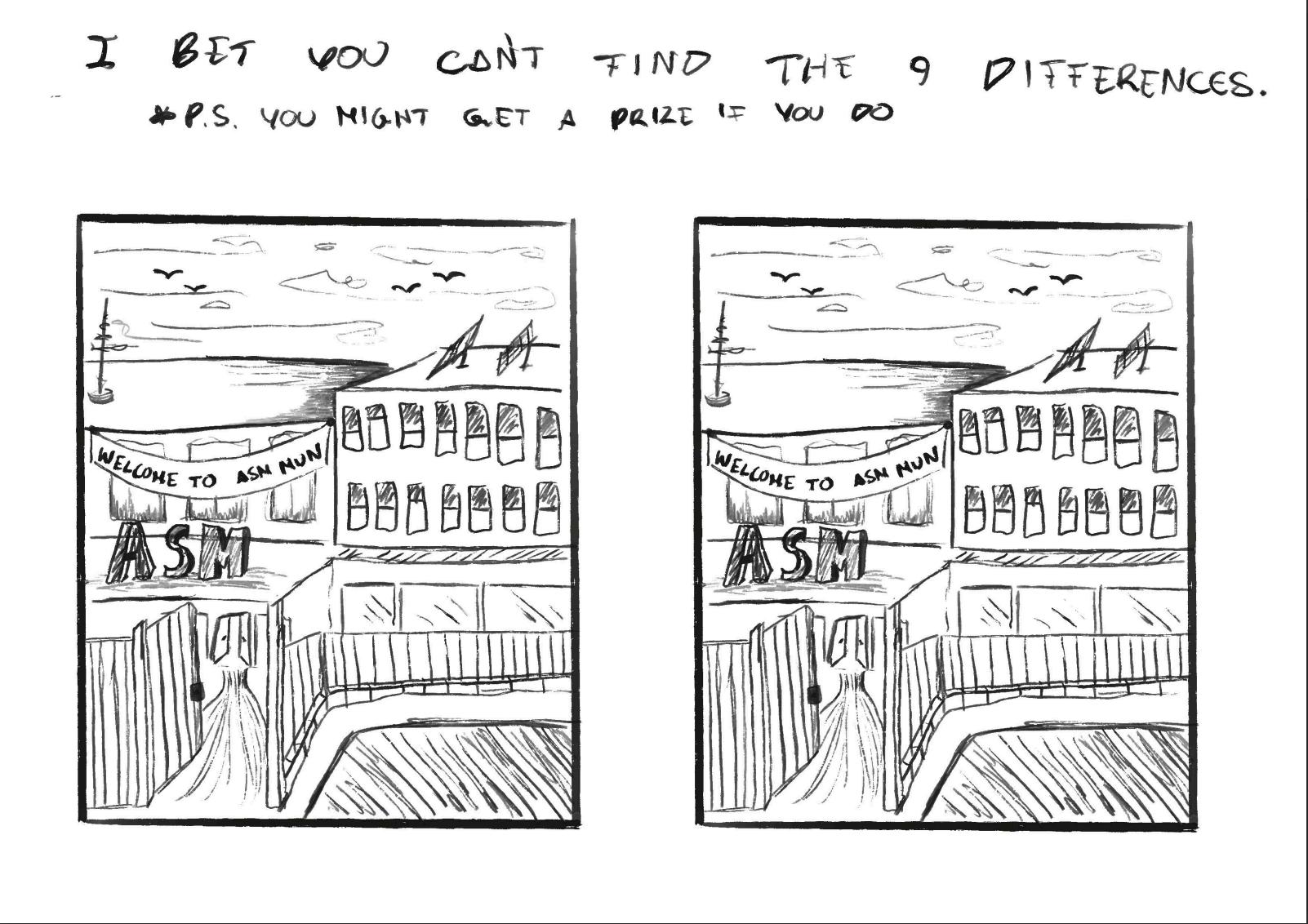

Editor in chief:
Anna Bergamo
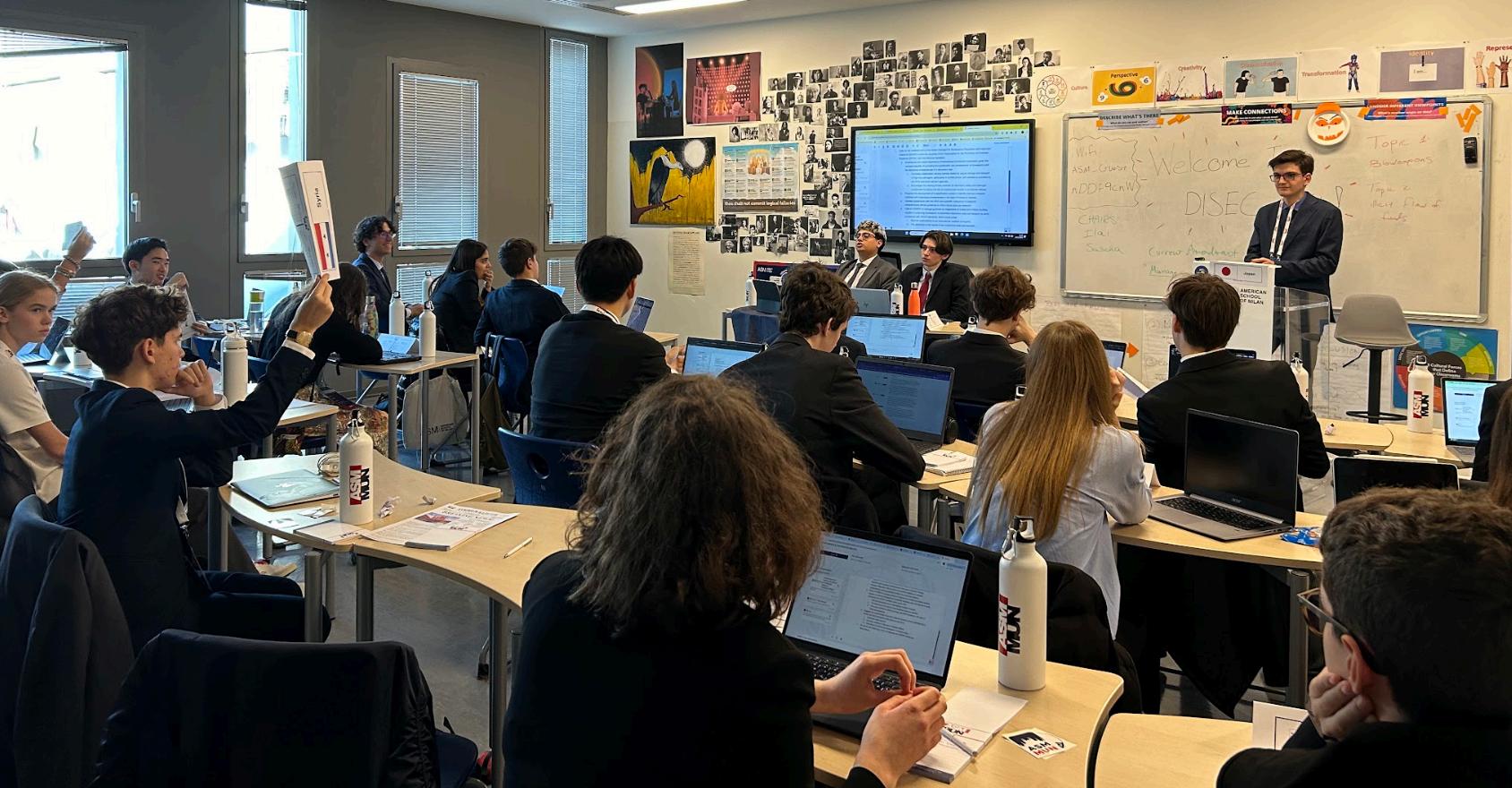

Social media manager:
Sofia Salvatori
Photographers:
Leonardo Monforte
Sebastiano Cabassi
Videographers:
Ryan Clabot
Adele Charman
Reporters:
Naima El Ouargui-Mayerhofer
Ophelia Coates
Lilah Robertson
Tamar Spektor
Cartoonist:
Lea Preti
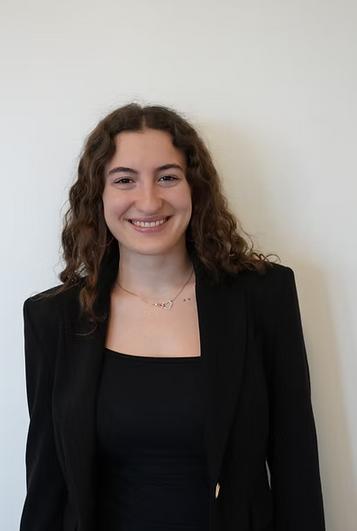

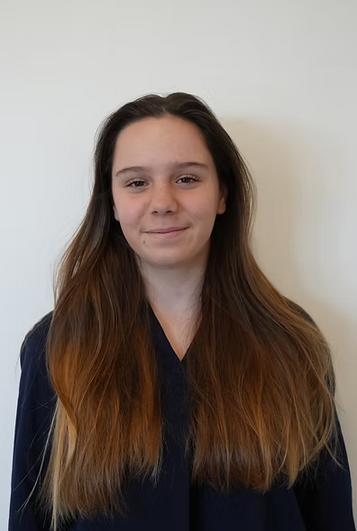
Sabbadini Executive team Co ‘2027




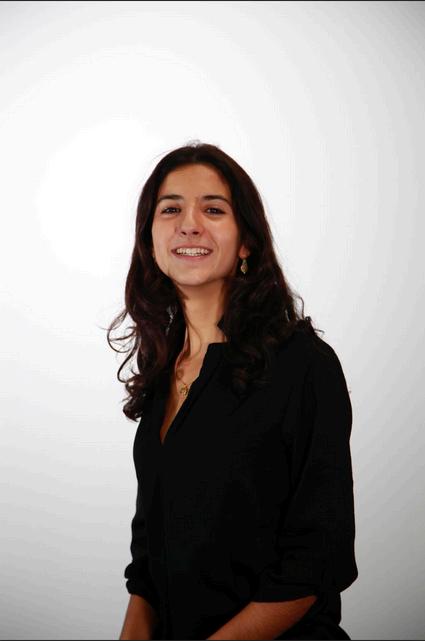
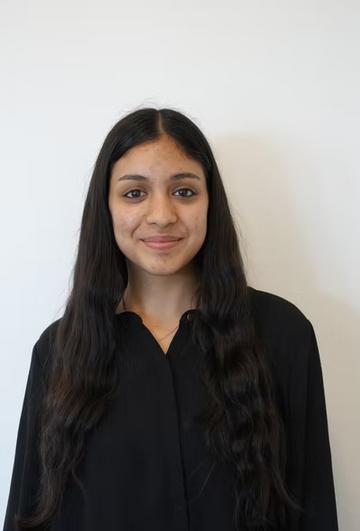
Co ‘2027
Klein Hospitality manager Co ‘2027